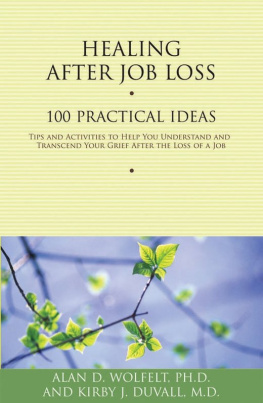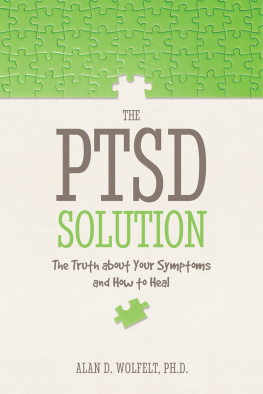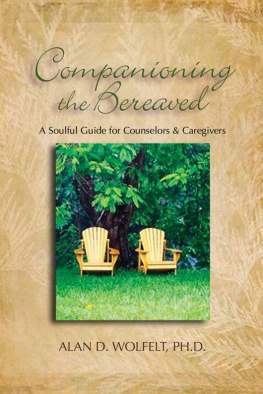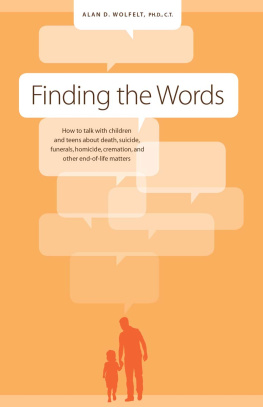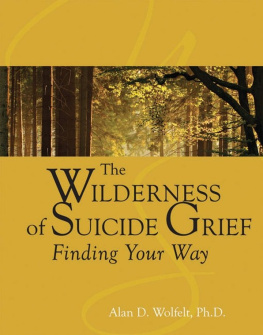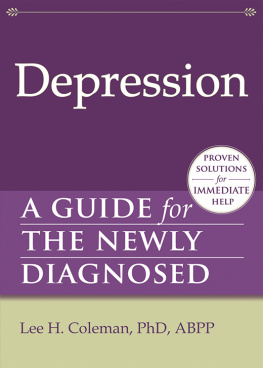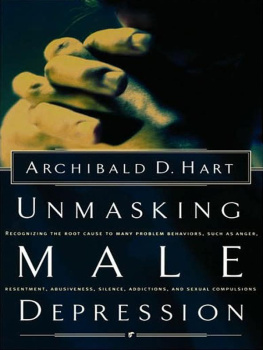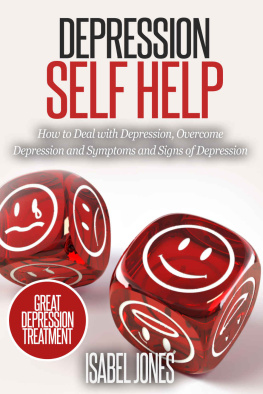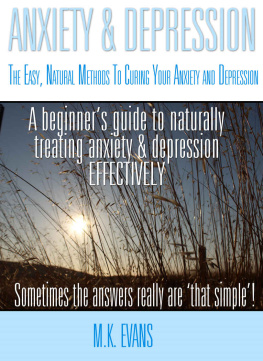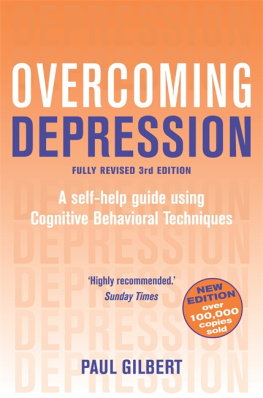Also by Dr. Alan Wolfelt
Companioning the Bereaved: A Soulful Guide for Caregivers
Healing A Friends Grieving Heart: 100 Practical Ideas for Helping Someone You Love Through Loss
The Mourners Book of Hope: 30 Days of Inspiration
The Mourners Book of Courage: 30 Days of Encouragement
Finding the Words: How to Talk to Children and Teens About Death
The Wilderness of Grief: Finding Your Way
And many others featured in the back of this book and at www.centerforloss.com/bookstore

Companion Press is dedicated to the education and support of both the bereaved and bereavement caregivers. We believe that those who companion the bereaved by walking with them as they journey in grief have a wondrous opportunity: to help others embrace and grow through griefand to lead fuller, more deeply-lived lives themselves because of this important ministry.
For a complete catalog and ordering information, write, call, or visit:
Companion Press
The Center for Loss and Life Transition
3735 Broken Bow Road | Fort Collins, CO 80526
(970) 226-6050 | www.centerforloss.com

2014 by Alan D. Wolfelt, Ph.D.
All rights reserved. No part of this publication may be reproduced, stored in a retrieval system, or transmitted in any form or by any means, electronic, mechanical, photocopying, recording or otherwise, without the prior permission of the publisher.
Companion Press is an imprint of the Center for Loss and Life Transition, 3735 Broken Bow Road, Fort Collins, Colorado 80526
(970) 226-6050
21 20 19 18 17 16 15 14 13 5 4 3 2 1
ISBN 978-1-61722-193-4
Contents
PART 1:
The journey we call grief
PART 2:
The sadness of grief
PART 3:
Grief depression or clinical depression?
PART 4:
Mourning as treatment
Mourning Need 1:
Accept the reality of the death
Mourning Need 2:
Let yourself feel the pain of the loss
Mourning Need 3:
Remember the person who died
Mourning Need 4:
Develop a new self-identity
Mourning Need 5:
Search for meaning
Mourning Need 6:
Let others help younow and always
PART 5:
Medical therapies as treatment
Grief companioning
a form of client-centered talk therapy
Combined treatment
antidepressants and talk therapy
PART 6:
Believe in your capacity to heal
Introduction
In my thirty-plus years of companioning my fellow human beings in grief, I have come to believe that depression and its consequences are the most serious mental and spiritual health challenges society faces today. This thin volume is my humble attempt to explore a very large and complex problem simply and succinctly.
The word happiness would lose its meaning if it were not balanced by sadness
Carl Jung
On the surface, this might seem like an overwhelming goal. It might even seem presumptuous to attempt to sort out the immense complexities of depression in such a small book. However, I believe that this resource can be of great benefit to the millions of people struggling to cope with grief and depression.
I am hope-filled and optimistic as I begin this book. Why? Because I believe that grief is a spiritual, transformative journey that we who have suffered losses take so that we can come out of the dark and into the light.
As you will learn, I believe it is normal and necessary to experience reactive depression after a significant loss, especially the death of someone loved. Depression lets us know when we are depleted and hope-less. It signals us to suspend, to take a time-out and listen with deliberate attention to what is happening in the depths of our souls. When we heed this call to suspend, we learn about ourselves and our need to mourn.
It was Scott Peck who observed that depression is often connected to our inability to give up the old for the new. In large part, that is what mourning is all aboutgiving up aspects of a life we used to know and adapting to the new and different. After the death of someone loved, this shift means slowly and painfully moving from a relationship of presence to a relationship of memory.
You cannot protect yourself from sadness without protecting yourself from happiness
Jonathan Safran Foer
The very existence of depression is what helps us understand and appreciate joy. Just as there is no light without darkness, there is no happiness without unhappiness. In the dark of night, you trust that the dawn will come. In the dark of depression, you can also choose to hope and trust that happiness will return.
So, if you are depressed, you are not weak, and there is nothing to be ashamed of. You will learn in the pages that follow that mourning is the shared response to loss, or grief gone public and that mourning, like grief, is normal and necessary. You must not keep your depression to yourself. You both need and deserve human contact. Without it, your depression will deepen, and you risk complete withdrawal from the world around you.
When you seek out helpers, I hope you will find the support of those who take the companioning approach I advocate for depression. Even if clinical depression or complicated grief are blocking your path to healing, I will still suggest that the spiritual-companioning philosophy, when used together with up-to-date medical understanding, provides the best approach to help you out of the darkness of depression and into the light of a new tomorrow.
A renewed sense of meaning, purpose, and, yes, even joy, await you. A deep harmony of mind, body, and spirit was yours at birth and can be yours again. Your openness to love and the capacity for wholeness is still within you. If deep depression has been part of your life for some time, you may believe it impossible to recapture your pre-depression self. But I assure you, it is possible, even probable. Starting right now, be proud yet humbled by your sincere intention and allow yourself to see even the slightest glimmer of light that every moment of your life invites. In other words, even in the face of your depression, love yourself.
Who looks outside, dreams; who looks inside, awakes.
Carl Jung
You may feel alone, questioning your existence, not liking who you are, and feeling as if there is no way out of your depression. Yet loving yourself means recognizing you, seeing you, and honoring you just as you are right now. Even when you are depressed, it is a privilege to be yourself. You have been given the opportunity to feel, to experience, to live life complete with all its challenges and its opportunities. In the midst of the pain of grief it is easy to forget this.
Yes, even in the face of loss, please remember: It is a gift to be alive, and just being born into this world is a privilege. Being able to give and receive love and mourn your life losses is part of the beauty of life. If you neglect to affirm the truth that blessed are those who mourn, you insult the consciousness that gave you life.
I believe there is always hope, and I know that there is help. I hope we meet one day.

A SPECIAL NOTE TO FRIENDS AND FAMILY MEMBERS
You may be reading this book because you are concerned about a family member or close friend who has suffered a significant loss and seems very depressed. If so, please keep in mind that depression often results in withdrawal and feelings of helplessness. Many people who struggle with depression often think, Nothing can help me, and they also often lack the energy to get help for themselves. In fact, it is estimated that half of the people in North America who suffer from depression never seek help. Ironically, the biggest roadblock to getting help for depression is often depression itself.


